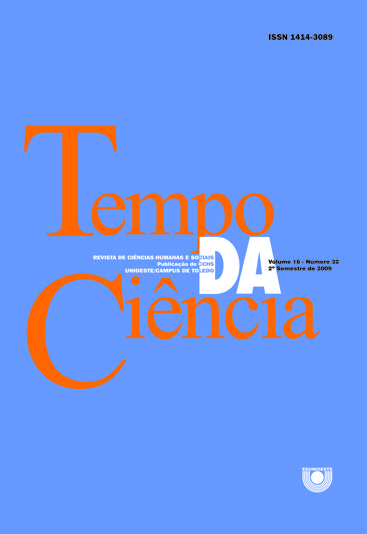A Materialidade no Caminho da Efetivação do Espírito na Filosofia de Hegel
DOI:
https://doi.org/10.48075/rtc.v16i32.8801Keywords:
pressuposto, primazia, efetivação, história.Abstract
Hegel’s identification with idealism may not apprehend adequately hisphilosophical thinking if one takes it as a definitive and absolute determination because he isa dialectical thinker or even better speculative. In this sense the moment of materialitycannot be just put aside as a contingency but it is more the opposition through which thespirit fulfills itself. This one cannot be what it is without assuming the materiality as well asthe matter cannot be effective without being overtaken in the spirit. The totality appointedby Hegel in the absolute spirit means precisely to know and to recognize one another in theother and also by the other as itself. The spirit only raises to itself insofar it assumes itsopposition in matter and by being determined it determines itself but this cannot be fulfilledanywhere but in the matter. In the same way the matter cannot be effective without goingbeyond itself or being considered in thought, that is not as well establishing itself. If thespirit and the matter are effective insofar they are in relation with one another then theprimacy of one over the other can only be understood as a result and not as a starting point.In this way the first moment must not be taken as something static but as coming to be.Downloads
Published
How to Cite
Issue
Section
License
Aviso de Direito Autoral Creative Commons
Política para Periódicos de Acesso Livre
Autores que publicam nesta revista concordam com os seguintes termos:
1. Autores mantém os direitos autorais e concedem à revista o direito de primeira publicação, com o trabalho simultaneamente licenciado sob a Licença Creative Commons Attribution que permite o compartilhamento do trabalho com reconhecimento da autoria e publicação inicial nesta revista.
2. Autores têm autorização para assumir contratos adicionais separadamente, para distribuição não-exclusiva da versão do trabalho publicada nesta revista (ex.: publicar em repositório institucional ou como capítulo de livro), com reconhecimento de autoria e publicação inicial nesta revista.
3. Autores têm permissão e são estimulados a publicar e distribuir seu trabalho online (ex.: em repositórios institucionais ou na sua página pessoal) a qualquer ponto antes ou durante o processo editorial, já que isso pode gerar alterações produtivas, bem como aumentar o impacto e a citação do trabalho publicado (Veja O Efeito do Acesso Livre).
Licença Creative Commons
Esta obra está licenciada com uma Licença Creative Commons Atribuição-NãoComercial-CompartilhaIgual 4.0 Internacional, o que permite compartilhar, copiar, distribuir, exibir, reproduzir, a totalidade ou partes desde que não tenha objetivo comercial e sejam citados os autores e a fonte.


